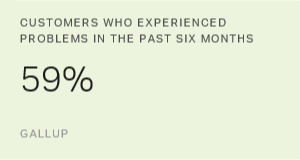There are some big questions that technology companies in the channel are asking themselves today:
Who is the customer of the future? How can we cement our position in their minds and in the market -- and continue to deliver to our shareholders?
While leaders are asking these questions, there are also dramatic disruptions happening in the channel. Tech companies know they can no longer rely on a competitive product and speed to market as a differentiator. It's merely a ticket to play.
Companies must demonstrate their value and find their "in" with the end-customer to solidify their standing and win a seat at the table.
They can do this -- if they solve for customer engagement, not just satisfaction.
Why? Because customer engagement is the key to a customer's emotional or psychological attachment to a brand, product or company. And customer decisions are predominantly emotional.
When a customer is fully engaged with a company, the customer forms an attachment that influences their purchasing behaviors beyond rational factors.
This presents an opportunity for technology companies, as only 29% of business-to-business (B2B) customers are fully engaged.
Gallup finds that becoming a trusted adviser and delivering customer impact are the most powerful, emotionally driven differentiators for unlocking the organic growth that's in such short supply.
However, companies underestimate what it takes to capitalize on the emotional economy and engage customers -- and it's a complex initiative.
Tech companies need to move from being product providers to strategic partners overnight due to industry trends and disruptions, like new technologies being introduced into the marketplace driving digital transformation and the recent tariffs in China.
On top of that, companies and providers have become more matrixed -- so new decision-makers and influencers have entered the discussion up- and downstream.
These new players are often overlooked, but it is critical to engage them, share your expertise with them and build trusted partnerships.
How to Ramp Up Customer Engagement During Disruptions
To build trust with every point of contact, you can start by revisiting your customer experience programs and reviewing how you sell to and service all important relationships in the ecosystem. All of your contacts in the matrix must understand your value and how you can co-create business solutions for them as a trusted adviser.
Below is Gallup's advice for engaging your customers and becoming a trusted adviser in your matrixed and ever-changing channel.
1. Find out what your customers want using advanced analytics from a third party.
Gallup analyzed nearly 18 million global B2B customers and found that 71% are considered either indifferent or actively disengaged. That means 71% of customers are willing to take their business elsewhere.
Companies often rely heavily on customer service and sales teams or on customer satisfaction surveys for the data they need to make decisions. But that intelligence can be biased or uninformed, depending on how it is collected.
To prevent customers from taking their business elsewhere, customer-facing teams should really know what their customers want and how to deliver value that can affect their bottom line.
But accessing and evaluating the right information -- the information that leaders need for good decisions -- is a science, not an art. Partner with an objective third party to investigate what customers value.
2. Empower your sales and service teams to deliver on your promise.
According to Gallup research, 46% of customers strongly agree that their vendor or partner always delivers on what they promise.
Unfortunately, most organizations solve for this by putting their sales teams through a training program as the only intervention, and even then, the program doesn't incorporate specific customer or company data and analytics.
However, by providing your sales and service teams with the right data, insights and analytics about their customer, their customer's customer, and the industry and market opportunity that exists today, this can immediately position them as a trusted adviser and dramatically impact results.
To position their teams for success, companies should leverage objective, third-party, top-of-the-line advanced analytics to properly evaluate the talent of their sales teams. With that intelligence, companies can then adjust their sales strategies and teams according to their customer-facing talent.
A good talent strategy assesses everyone who impacts the customer experience. Don't overlook the sales support talent upstream -- it can make a big difference to the salespeople's customer relationships.
3. Revisit and rebuild your corporate narrative from the inside out.
A winning corporate narrative emphasizes why the company is valuable to the market. As technology companies continue to introduce innovative products, their employees must understand the value they bring to their customer and their customer's customer.
Gallup research suggests that while executives may understand this reality, customer-facing teams often don't. That can cause uncertainty and, potentially, a lack of communication that damages customer relationships.
This is problematic, as front-line employees have the most significant effect on the customer relationship. Gallup research shows that only 30% of B2B customers say their commercial partner understands their needs.
Leaders should educate and empower their teams with the knowledge of the value they bring to their customers.
Product needs are well-satisfied -- but emotional needs are up for grabs.
None of this suggests that innovation and speed to market are less important than they used to be. They are critical, and as competitors enter your space, innovation and speed become more important all the time.
But those competitive advantages aren't enough. Tech is mature enough that product needs are well-satisfied -- but emotional needs are up for grabs.
The most powerful of those needs is trust. The most successful companies will be those who build customer relationships based on it.
By creating a cohesive experience for every partner, supplier, distributor and end-customer in the channel, trusted advisers are the ones who win customers -- and a very secure seat at the table.
Gallup can help your organization build trusting relationships with proven best practices:
- Discover how Gallup helps leaders see dramatic growth and improve consumer confidence with analytics-based decision-making.
- Download our free guide to sustainable business growth through customer engagement.




